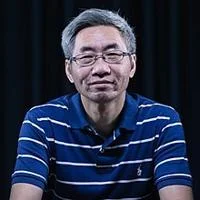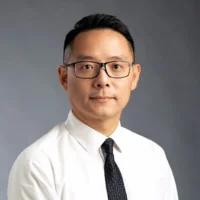LSE-Fudan Annual Conference

LSE-Fudan Annual Conference on Global Public Policy
The 4th LSE-Fudan Annual Conference on Global Public Policy Was Successfully Held in London
On November 6-7, 2025, the 4th LSE-Fudan Annual Conference on Global Public Policy was successfully held at the Yangtze Theatre at the London School of Economics and Political Science (LSE). The theme of this year's conference was AI for Global Good. The conference was organized by the LSE-Fudan Hub and brought together leading scholars, researchers, and policymakers from both institutions to examine the profound implications of artificial intelligence for global society.
Read the conference report here.
Past Conferences
Conference Theme
The theme of this year’s conference was "Rethinking Global Public Policy: Actors, Mechanisms, and Performance."
The post-pandemic world faces more serious and urgent challenges to effective and resilient global governance of issues affected by global public interest. Traditional policy problems such as global warming and climate change, poverty alleviation and international development, social and industrial transitions, public service provision, health, economic openness, and security have encountered increased difficulties due to economic slowdown and enlarged economic inequality. Simultaneously, new challenges such as AI, biosecurity, and aging populations still lack basic mechanisms of global cooperation and collaboration.
Amidst these trends, the actors in the landscape of global public policy have experienced significant changes in their structure, values, goals, mutual relations, strategies, and courses of action. The tools and mechanisms available to global actors have also been shifting in their legitimacy and effectiveness due to evolving technical and institutional contexts.
The Conference Panels
The first panel focused on Global Environmental Governance. Huajun Yu, from the Department of Environmental Science and Engineering at Fudan University, examined how policies and innovation drive the sustainable development of the bioeconomy. Daniel Guttman, from IGPP, provided insights into collaborative approaches for climate adaptation governance. Zhiwei Wu from the Institute of Atmospheric Sciences at Fudan University, analyzed the climatic impacts of the Antarctic ozone hole on East Asian winter precipitation. Tanvi Deshpande from the Centre, explored the role of local norms in shaping regional climate landscapes. Yanyan Huang, also from the Department of Environmental Science and Engineering, discussed the significance of shared-value communities in fostering societal transformation. Gong Ting, from IGPP, moderated the panel.
The second panel centered on Science, Technology, and Innovation. Richard Freeman, from the Department of Economics at Harvard University, delivered a talk on the high concentration of economics awards at top schools. Jiang Li, from School of Information Management at Nanjing University, analyzed the mechanisms and impacts of AlphaFold in shaping the research directions of biomedical scientists. Li Tang, from the School of International Relations and Public Affairs at Fudan University, examined the influence of China's health technology assessment on decision-making. Xi Lin, from Fudan Institute for Advanced Study in Social Sciences, discussed China’s governance model for big data. Wenyan Tu, from IGPP, analyzed the varying effects of proxy control transparency on corruption latency. Meijun Liu from IGPP moderated the panel.
The third panel focused on International Development. Alvaro Mendez, from LSE, discussed the impact of expanding membership in multilateral development banks. Robert Basedow, from the LSE European Institute, analyzed how external shocks have reshaped the supply-side of EU regional integration. Tinghua Yu from Birkbeck, University of London, explored the 'sisterhood effect' on women's empowerment in Kenya. Yuezhou Yang, from the Centre, shared insights on the role and impact of Chinese agricultural projects in land governance in Zambia. Yunxiong Li, from IGPP, presented on the material basis of the value of technological innovation. Andrew Street from the LSE Department of Health Policy moderated the panel.
The fourth panel focused on Technology Governance. Karl Löfgren, from the School of Government at the Victoria University of Wellington, delivered a speech on the application of AI in the public sector. Ziteng Fan, from IGPP, presented on the risks of automation and policy preferences. Blake Miller, from the LSE Methodology Department, discussed how to ensure the quality of digital text data generated by large language models. John Minnich, from the LSE Department of International Relations, analyzed the roots and impacts of the US-China 'Chip War.' Xingdong Fang, from the College of Media and International Culture at Zhejiang University, provided an analysis of the US-China tech war and the global new technological order. Bingchun Meng, co-director of the Hub moderated the panel.
The fifth panel focused on Global Health Governance. Andrew Street, shared his research on adapting risk scores for hospital frailty in China. Yingyao Chen, from the School of Public Health at Fudan University, discussed financial protection policies for expanding health coverage in the Asia-Pacific region, delivered online. Clare Wenham, from the LSE Department of Health Policy, presented her latest research on the WHO’s 'Pandemic Treaty' negotiations. Xin Ye, from IGPP, analyzed the impact of life course factors on cognitive function in later life. Justin Parkhurst, from the LSE Department of Health Policy, offered insights on the role of scientific evidence in public policy. Yuxi Zhang, from the UCL Global Business School for Health, delivered a speech on research related to public health crisis response.
Conference Programme
| Day 1: Sunday 3 November 2024 Venue: 30th Floor, Siyuan Hall, West Main Guanghua Towers | |
| 08:30 – 9:00 | Opening Remarks/ Group Photo |
| 09:00 – 10:30 | Panel 1: Global Environmental Governance |
| 10:30 – 10:50 | Tea Break |
| 10:50 – 12.20 | Panel 2: Science, Technology and Innovation |
| 12.20 – 13:30 | Lunch |
| 13:30 – 15:00 | Panel 3: International Development |
| 15:00 – 15:20 | Tea Break |
| 15:20 – 16:50 | Panel 4: Technology Governance |
| 16:50 – 17.10 | Keynote Speech |
| 15.10 – 19.00 | Dinner |
| Day 2: Monday 4 November 2024 Venue: 805E, West Sub Guanghua Towers | |
| 08:30 – 9:00 | Reception (Coffee & Disserts) |
| 09:00 – 09:20 | Opening Remarks |
| 09:20 – 09:30 | Group Photo |
| 09:30 – 11.30 | Panel 5: Global Health Governance |
| 11.20 – 11:30 | Closing Remarks |
| 11:30 – 12:30 | Lunch |
In 2023 China and the world are recovering from the impact of Covid on the economy and society. Policymakers in China are facing a host of challenges and priorities: healthcare, social welfare, the environment, innovation and technology and the need to balance these with economic growth.
Rapid and consistent economic development has lifted millions out of poverty; the government is likely to continue its efforts to reduce inequality and provide support for vulnerable groups, such as the elderly and disabled.
With an aging population and rising healthcare costs, China's healthcare system is under pressure. The country is also facing some environmental challenges, including air and water pollution, deforestation, and desertification. In addition, China is aspiring to become a global leader in innovation and technology but needs to continue investing in research and development to maintain its competitive edge.

Dr. Keyu Jin is an associate professor of Economics (with tenure) at the London School of Economics and Political Science. She is from Beijing, China and holds a B.A., M.A. and Phd from Harvard University. Her research focuses on international macroeconomics and trade, and the Chinese economy, exploring questions such as technological competition between China and the rest of the world, what governments' optimal policies should be in the context of China's rapid growth and technological advancement, capital flows between China and the rest of the world, and the role of demographics. Her work also includes the international transmission of U.S. monetary and fiscal policy, and how it has changed over time. She is the author of The New China Playbook: beyond Socialism and Capitalism, which was a Financial Times Must Read of 2023. Her op-eds have appeared in the New York Times, the Financial Times, the Wall Street Journal, Time Magazine, and many more.

Prof. Shiping Tang is one of Asia’s most influential and innovative social scientists. In 2024, he will be honored as one of the three Distinguished Scholars at the Global IR Section (GIRS) at the ISA Convention in San Francisco, along with Barry Buzan and Cristina Rojas.
Prof. Tang holds the position of Fudan Distinguished Professor and Dr. Seaker Chan Chair Professor at, Fudan University, Shanghai, China. He also holds a "Chang-Jiang/Cheung Kong Scholar" Distinguished Professorship from the Chinese Ministry of Education, the highest honor a social scientist can hold in China.
Prof. Tang has a very broad research interest and has published widely, covering international relations, comparative politics, institutional economics, methodology, philosophy of the social sciences, political theory and sociology. He has also developed powerful platforms for complex decision making based Computational Social Sciences (CSS).

Dr. Yan Xiaojun is currently an associate professor in politics and public administration and Director of the Research Hub on Institutions of China at the University of Hong Kong (HKU). He obtained his Bachelor and Master of Law degrees from Peking University and an A.M. and Ph.D. in political science from Harvard University. He is a comparative political scientist with special expertise in the politics of China. Dr. Yan is the author of three books and co-editor of one edited volume. His articles have appeared in a dozen of leading international academic journals. Dr. Yan is recipient of the 2012 Gordon White Prize by The China Quarterly for his research on new entrepreneurial Party secretaries in rural China. His first book on Hong Kong politics is selected as one of the "Ten Best Chinese Books (non-fiction) Published in 2015" by Asia Weekly. He is recipient of HKU’s Outstanding Teaching Award (2013). Dr. Yan is a member of the Board of Directors of the Chinese Association of Hong Kong and Macao Studies.
Dates: 21 & 22 November 2023
Time: 21 November at 10:00 -18:00 and 22 November at 10:00 - 14:00
Venue: Shaw Library, Old Building, Houghton St, London WC2B 4RR
| Day 1: Tuesday 21 November 2023 | |
| 10:00 – 10:30 | Registration |
| 10:30 – 12:00 | Opening Remarks and Keynote Speeches |
| 12:00 – 13:30 | Lunch |
| 13:30 – 15.00 | Session 1: Economic Policy and Technology Governance |
| 15.00 – 15:30 | Coffee break |
| 15:30 – 17:00 | Session 2: Climate Change Governance |
| 17:00 – 18:00 | Drinks Reception |
| Day 2: Wednesday 22 November 2023 | |
| 10.00 – 10.15 | Coffee |
| 10.15 – 11.15 | Session 3: Health Care and Health Policy |
| 11:15 – 11:30 | Coffee break |
| 11:30 – 12:30 | Session 4: Demography and Social Policy |
| 12:30 – 12.45 | Closing Remarks |
| 12.45 – 14.00 | Lunch |
Share